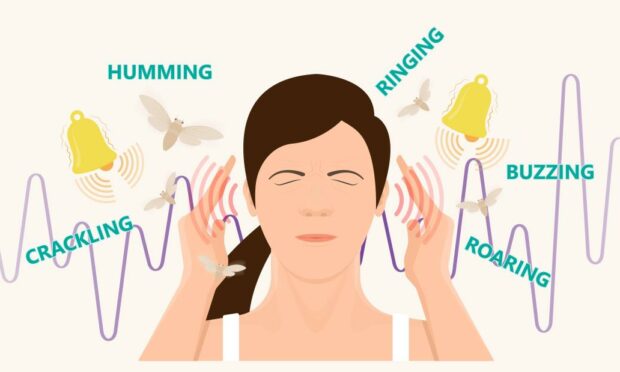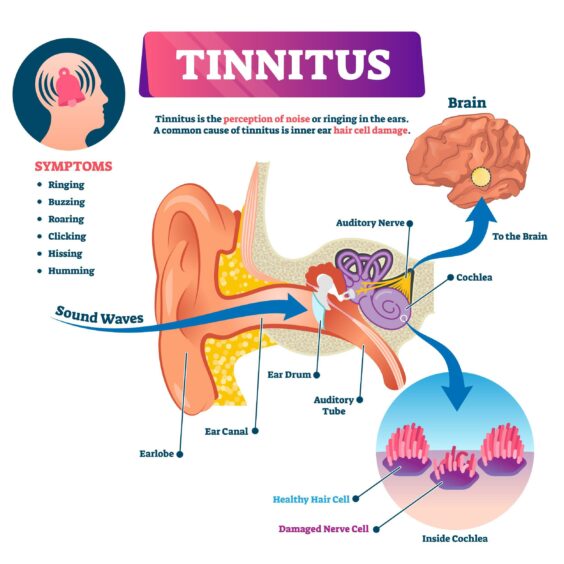If you suffer from a ringing noise in your ear you’ll know just how distracting – and annoying – it is.
It’s there when you wake up; when you’re trying to focus on work and even when you’re settling down to relax in front of the TV.
And you’re often left struggling to get to sleep because the ringing caused by tinnitus can feel so loud.
Statistics from the British Tinnitus Association (BTA) show up to 30% of people will experience the condition at some point.
And around one in 10 even say the constant buzzing significantly impacts the quality of their lives.
We caught up with Aberdeen audiologist Shona Ingram for Tinnitus Week to find out more about the condition and how to manage the symptoms.
What causes the ringing in the ears and can tinnitus be cured?
The exact cause of the condition is not known but it’s more common in people who suffer from hearing loss, or other ear problems such as ear infections, wax build-up or through suffering a cold.
Exposure to loud noise can also increase the risk, and sometimes people experience it following a stressful time in their lives.
Around 13% of people suffer with ringing in ears caused by tinnitus long term.
“As an audiologist, we don’t like to talk about a cure for tinnitus,” Shona says.
“If it’s persistent and affects your daily life or sleep pattern, we might look to manage the condition instead. Sometimes symptoms can be so well managed that you do feel relief.
“The good news is that some management techniques are simple.”
So how can you manage tinnitus without it driving you to distraction?
Shona, who works at Duncan and Todd in Aberdeen, says it’s best to stick to our normal routines.
When we suffer from something that causes worry, we often stop doing the things we enjoy – when, actually, that is the perfect distraction.
Avoiding stress or loud background noises can help, or you can try self-help books or techniques from the British Tinnitus Association website.
Joining a support group or looking at resources like Hearing Link’s website can also help you find ways to cope.
“Relaxation techniques have proven beneficial for some people with tinnitus too,” Shona says.
“With stress thought to intensify tinnitus, looking after your wellbeing can have a positive effect on symptoms.
“Anything you find calming can help reduce stress, whether it’s walking, yoga or even relaxing with loved ones.”
The first step is to speak to a professional and you can book an audiology appointment for a test.
An expert can then come up with a management plan to help give you relief from the symptoms.
More health news…
Woman tells of seven month wait for hospital appointment to find out if she was at risk of cancer
Moving closer to the sea helped me deal with grief of losing sister
Why does it take almost 10 years to get a confirmed bipolar diagnosis?


